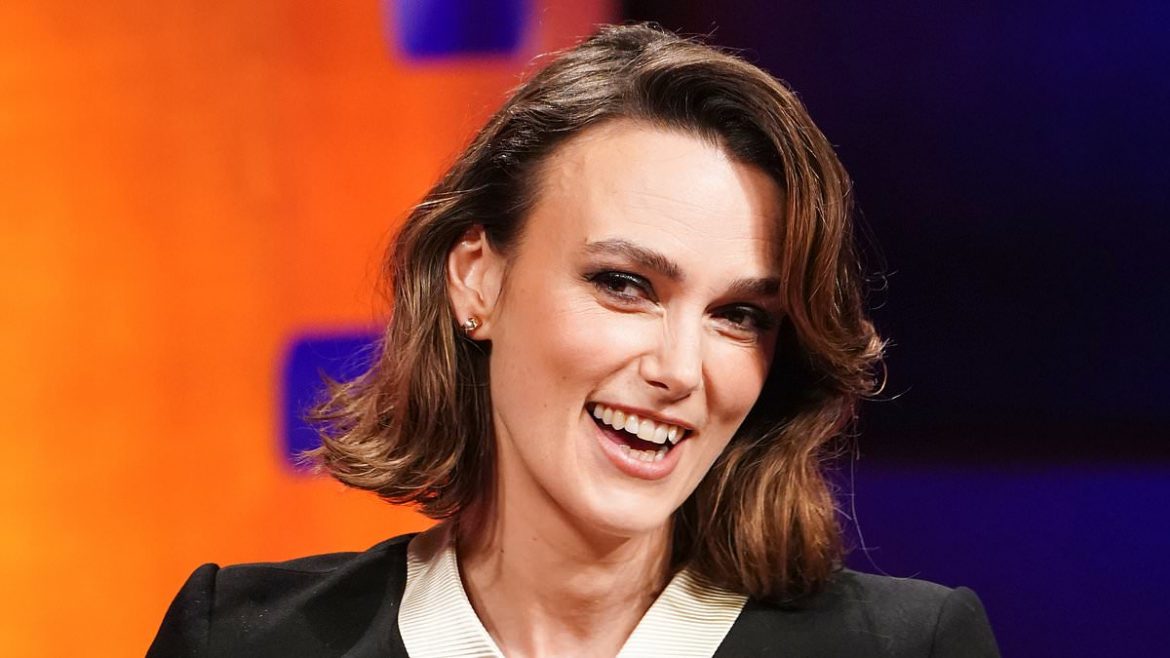When Keira Knightley signed on to lend her voice to a new Harry Potter audiobook, she thought it was simply another creative opportunity.
But what seemed like an exciting role quickly stirred controversy, as fans reminded the actress of the ongoing boycott against J.K. Rowling’s works over trans rights issues — something Keira admits she didn’t even know existed.
The Unexpected Backlash
The 40-year-old actress, celebrated for her roles in Pride and Prejudice and Atonement, was announced as part of Harry Potter: The Full-Cast Audio Editions, an Audible and Pottermore Publishing collaboration.
She was chosen to play the infamous Dolores Umbridge — one of the wizarding world’s most despised characters.
However, what should have been a nostalgic celebration of the franchise quickly turned sour.
Fans on social media accused Keira of aligning herself with Rowling, who has faced years of backlash for her stance on gender and transgender identity.
Keira’s Honest Response
When asked about the controversy by Decider, Keira appeared genuinely surprised.
“I was not aware of that, no — I’m very sorry,” she said.
She added thoughtfully, “We’re all living in a time where we need to figure out how to live together, aren’t we? We’ve all got very different opinions, and I hope that we can all find respect.”
Her response came as many pointed out that her involvement, along with several other actors, may not have been a direct endorsement of Rowling’s views — rather, a professional commitment to a project tied to a beloved cultural story.
Revisiting Dolores Umbridge
For Harry Potter fans, Dolores Umbridge remains one of fiction’s most chilling villains.
First introduced in the 2003 novel Harry Potter and the Order of the Phoenix, she was famously portrayed by Imelda Staunton in the film adaptations.
Even horror writer Stephen King once described her as “the greatest make-believe villain since Hannibal Lecter.”
Now, Knightley’s voice is set to bring Umbridge back to life in the new full-cast audiobooks — a project designed to reintroduce the magical series to a new generation through modern audio storytelling.
The New Wave of Harry Potter Adaptations
It’s been nearly two decades since the final Harry Potter book hit shelves, yet the franchise shows no sign of slowing down.
An HBO reboot series is already in the works, set for release in 2027, and the all-star Full-Cast Audio Editions aims to reimagine J.K. Rowling’s world in sound form.
The original audiobooks were narrated by Stephen Fry, who has since distanced himself from Rowling, citing disappointment in her views toward the trans community.
Fry, who once dined regularly with the author, has publicly shared that he feels she has become “radicalised” and expressed anger over her refusal to disavow hateful rhetoric online.
Stephen Fry’s Take on Rowling’s Stance
Speaking on his podcast The Show People, Fry admitted that Rowling’s transformation has saddened him.
“She started making peculiar statements and had very strong, difficult views,” he said, adding that her remarks had “kicked a hornet’s nest of transphobia.”
He went on to say, “I disagree profoundly with her on this subject.
She says things that are inflammatory and mocking — and that adds to a terribly distressing time for trans people.”
Despite his criticism, Fry also expressed concern about the hostile exchanges between Rowling and her critics, suggesting that the intensity of backlash has made dialogue nearly impossible.
A Divided Fanbase and Mixed Reactions
Keira Knightley’s casting reignited conversations among fans, with many divided on whether participation in Rowling-related projects equates to endorsement.
Some came to her defence, arguing that actors like Keira, James McAvoy, and Kit Harington probably saw the project as “just another creative job,” especially since contracts were made through Audible rather than Rowling directly.
Others felt that, intentional or not, their involvement could still feel hurtful to the LGBTQ+ community, given Rowling’s public stance.
Still, some insisted that focusing hatred on the actors was misplaced — emphasizing that art and politics, though intertwined, shouldn’t always be conflated.
The Broader Debate: Law and Identity
The controversy surrounding Rowling’s views has only intensified following a recent Supreme Court ruling in the UK.
The court ruled that under the 2010 Equality Act, the terms “woman” and “sex” legally refer to biological definitions, not self-identified gender.
The decision has major implications for single-sex spaces — such as women’s refuges, hospital wards, and changing rooms — as well as for employment and sports.
The government hailed the ruling as bringing “clarity and confidence,” though many trans advocates described it as a setback for equality.
Impact on Trans Rights and Public Spaces
Under the new interpretation, trans women with gender recognition certificates can be excluded from female-only spaces if it’s deemed “proportionate.”
While some campaigners, including Rowling, welcomed the ruling as a “victory for biological women,” human rights experts warned that it risks fuelling further division and misunderstanding.
Legal specialists have since explained that trans individuals remain protected under gender reassignment provisions — meaning they can still bring claims of discrimination or harassment.
Yet, the ruling leaves room for significant legal grey areas, particularly in workplaces and public facilities.
Beyond Politics: Science and Healthcare Debates
Amid ongoing debates about gender identity, the UK government also reviewed NHS practices regarding children experiencing gender incongruence.
The Cass Review, led by Dr. Hilary Cass, found “remarkably weak evidence” supporting puberty blockers and hormone treatments for minors.
Her report called for more rigorous research, better mental health support, and dedicated services for those who choose to “de-transition.”
The recommendations aim to protect young people from making irreversible medical decisions without sufficient evidence or guidance.
Finding Common Ground
Through all the debate, Keira Knightley’s reaction seems rooted in a simple wish — that people can disagree without hatred.
While she may have unknowingly stepped into a culture war, her call for respect reflects the hope that dialogue, empathy, and understanding can still exist in a world increasingly defined by division.
Share on Facebook «||» Share on Twitter «||» Share on Reddit «||» Share on LinkedIn
